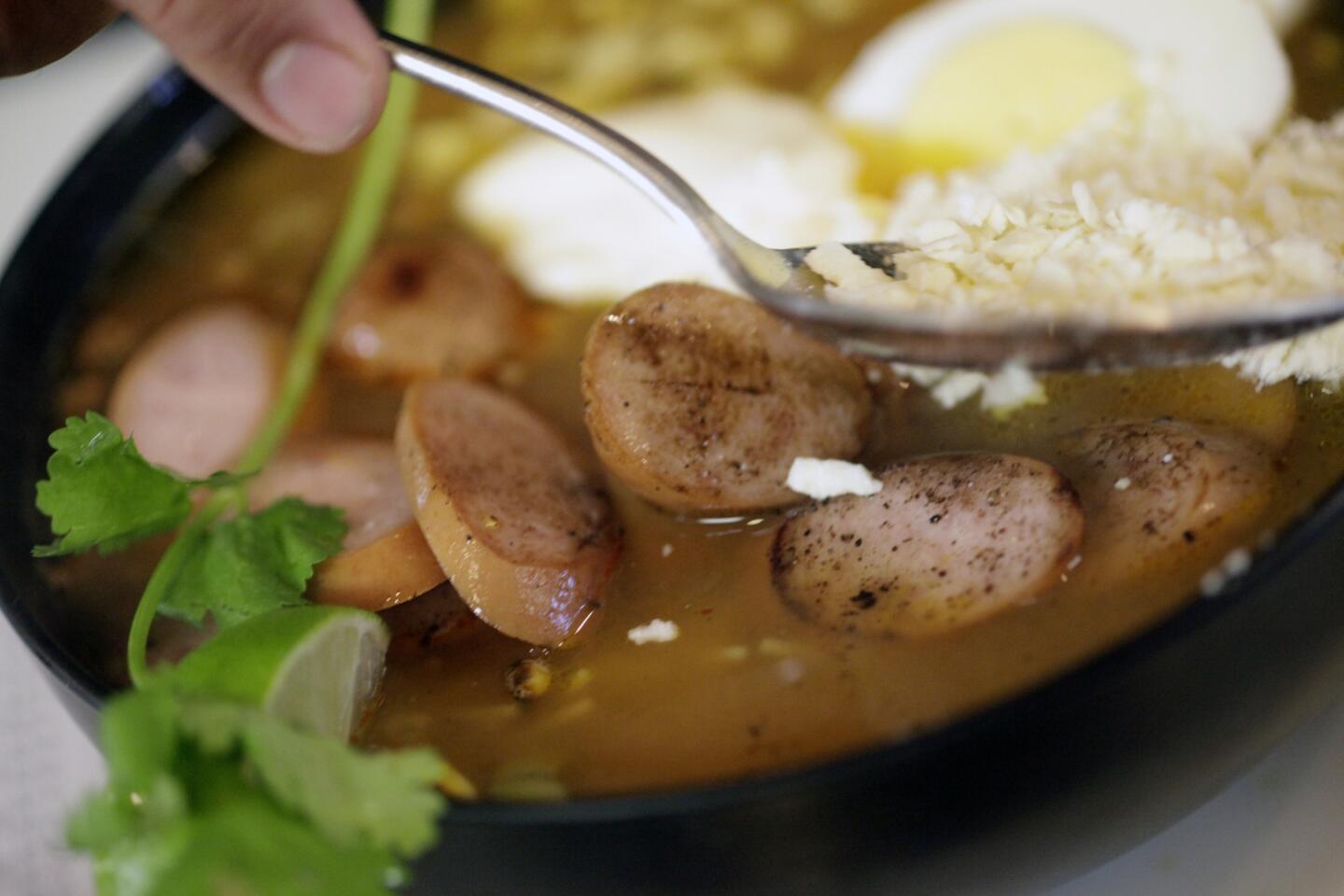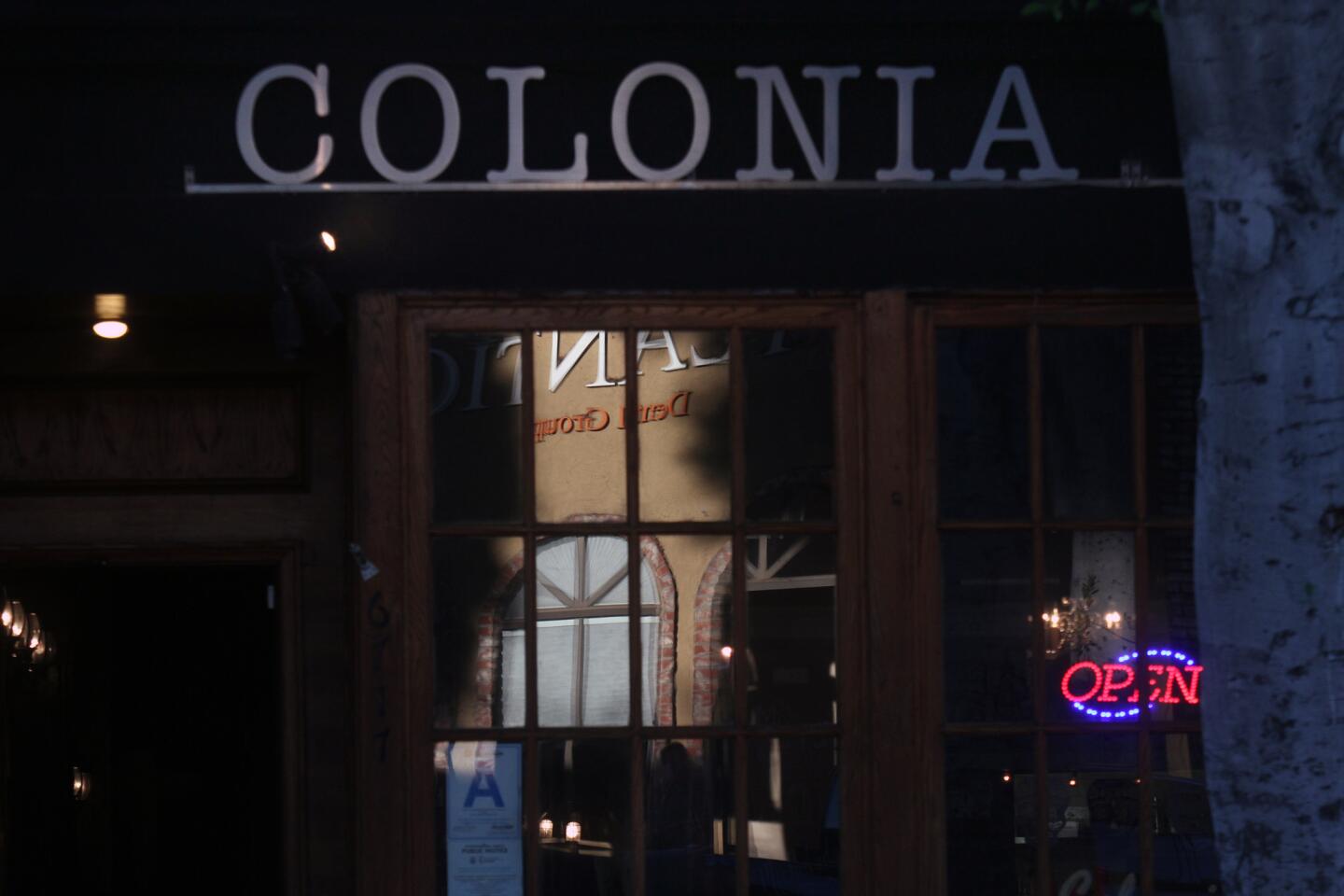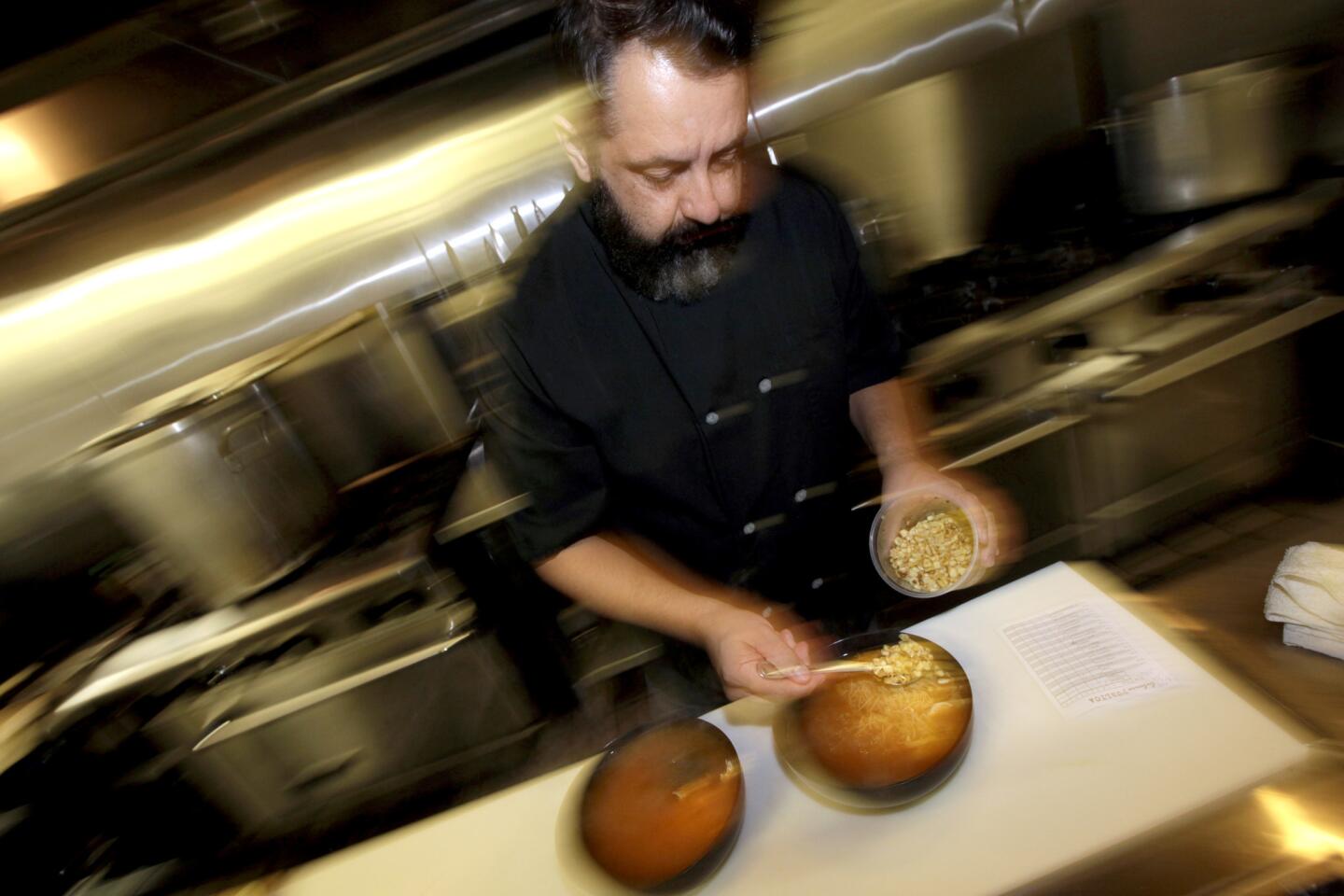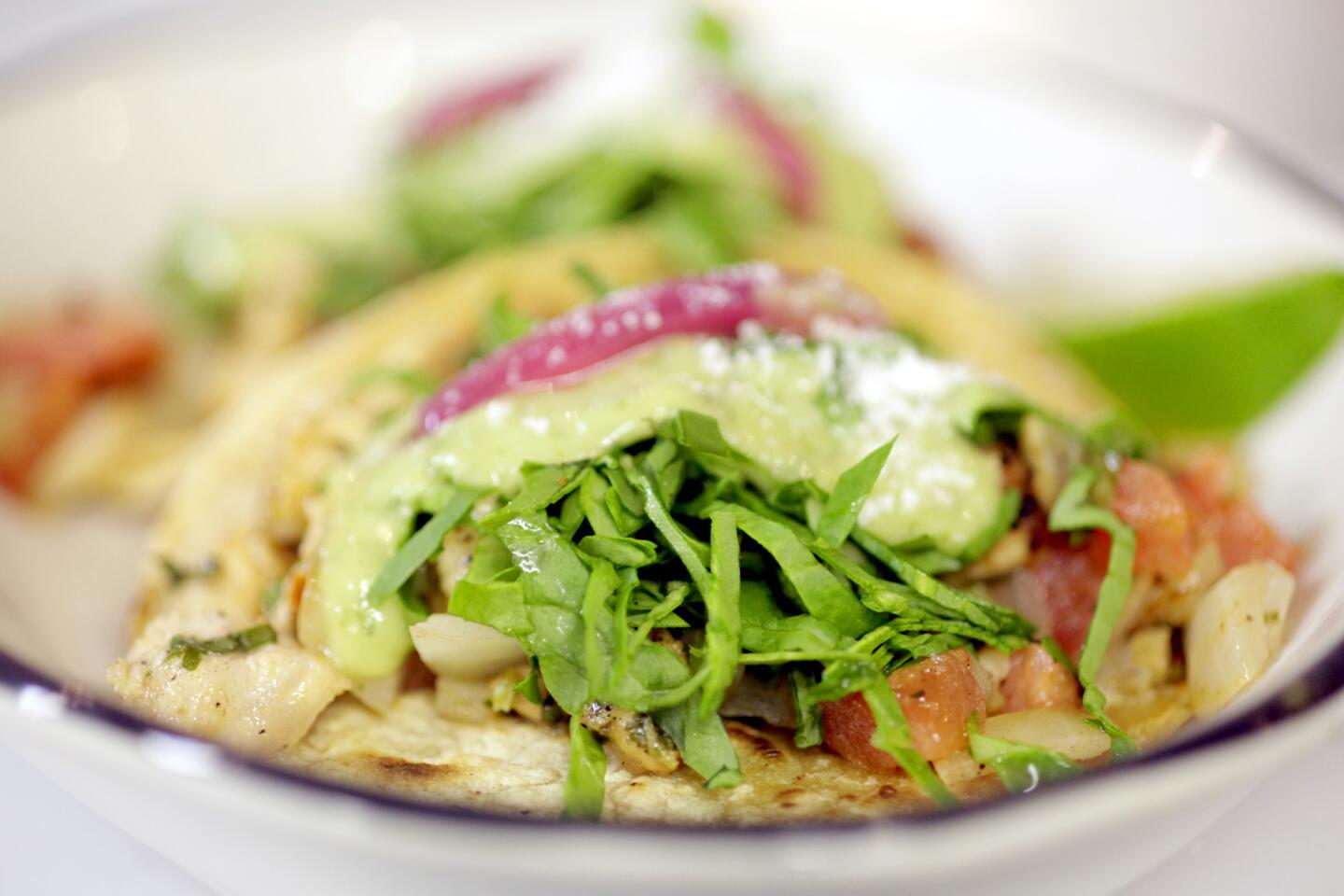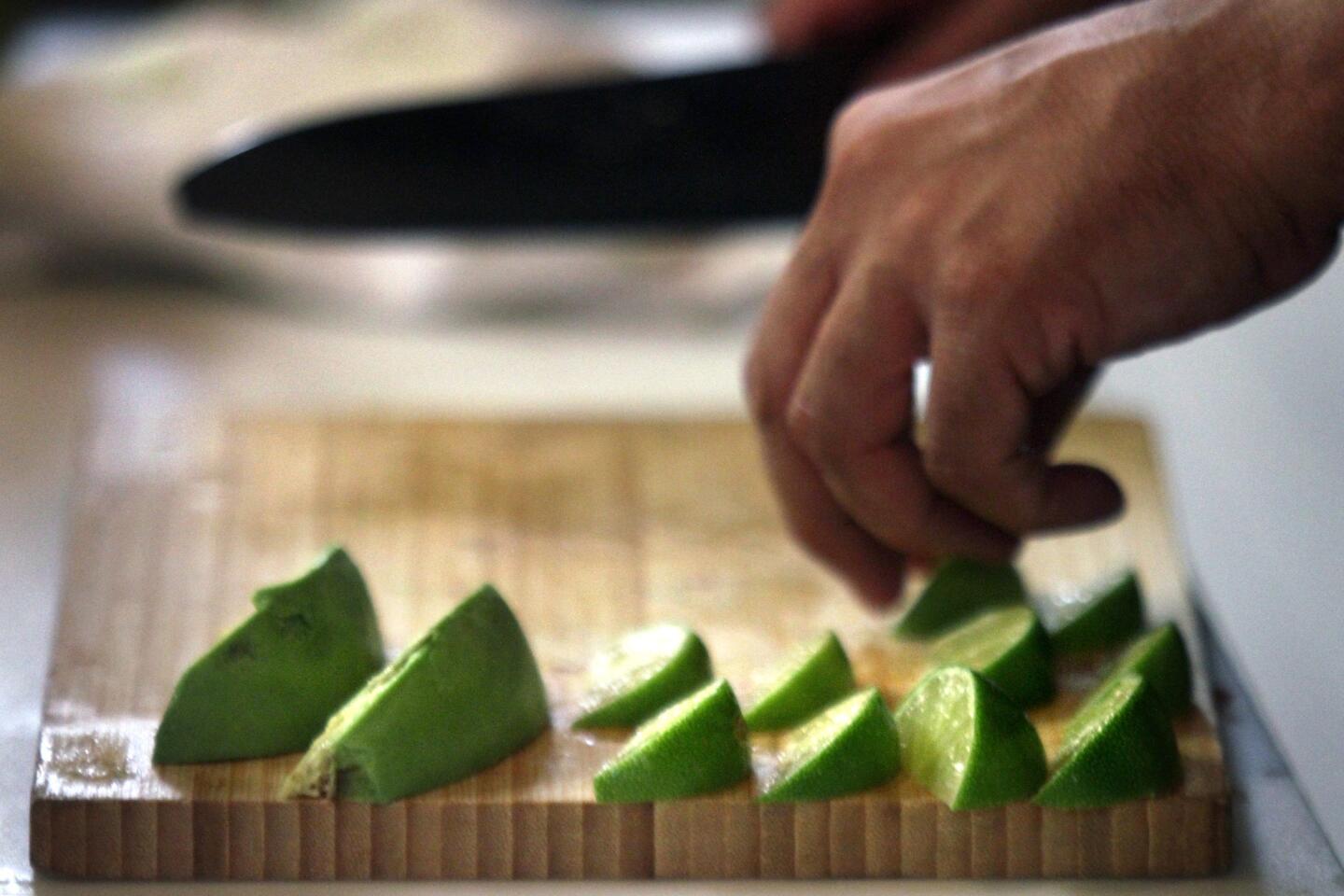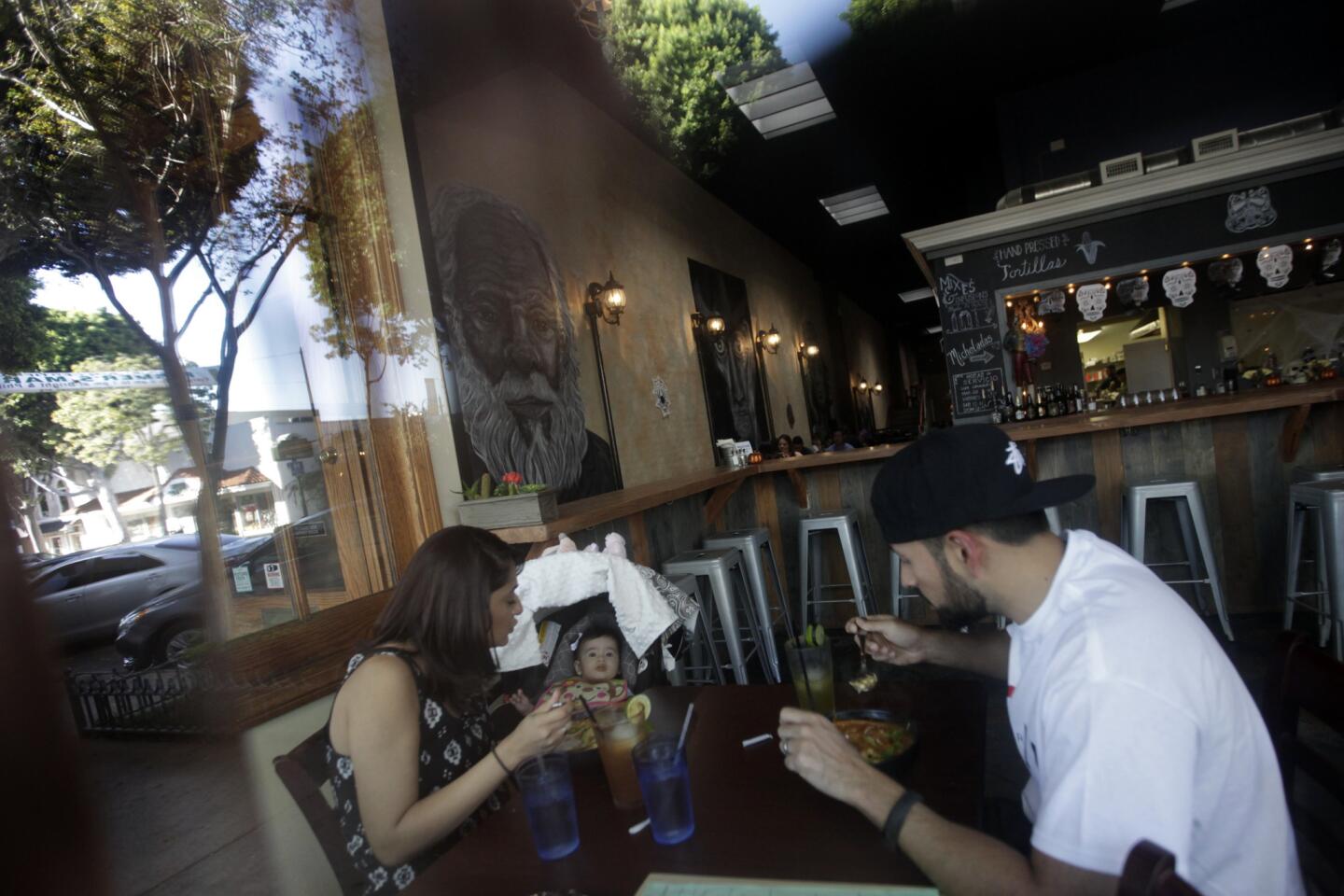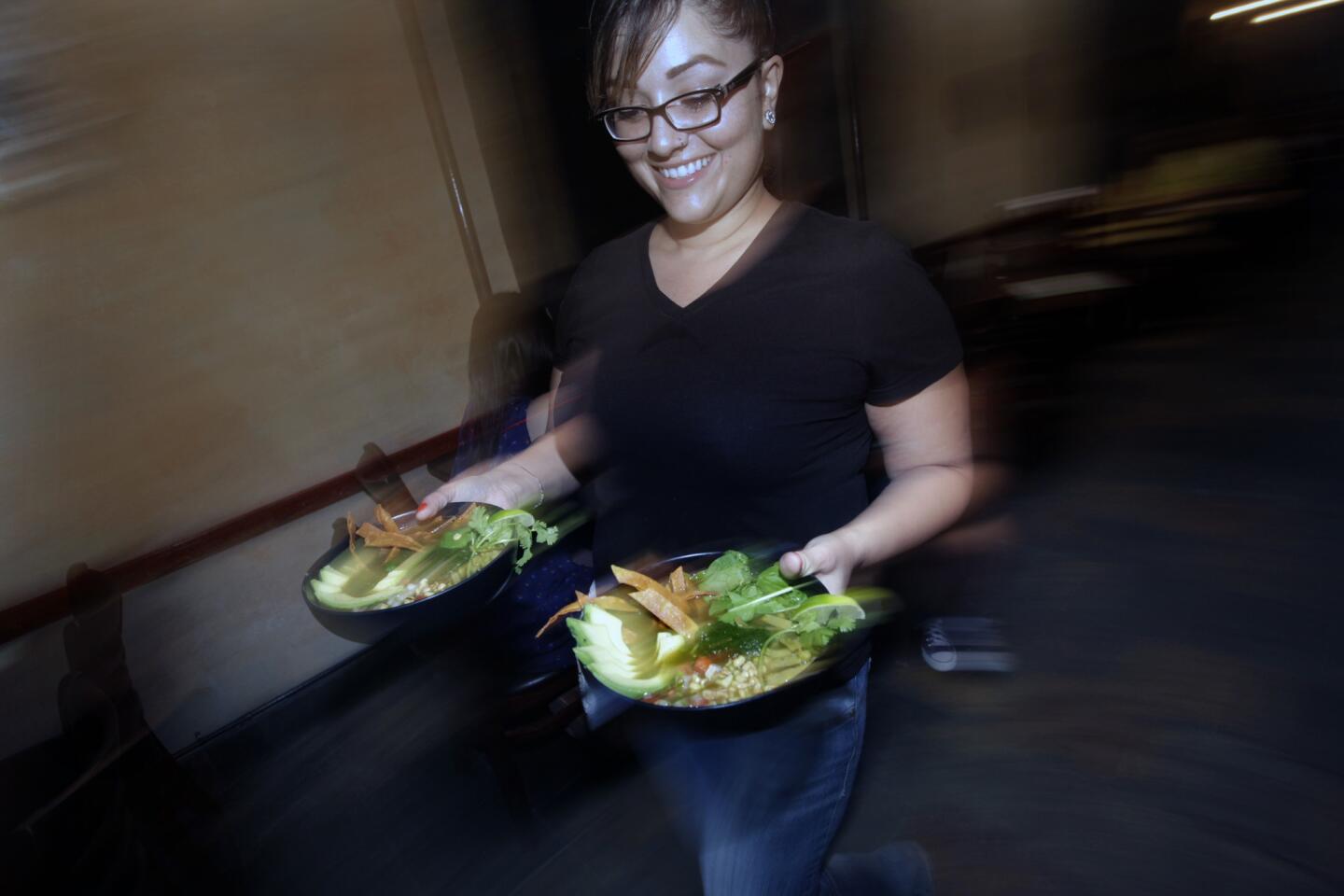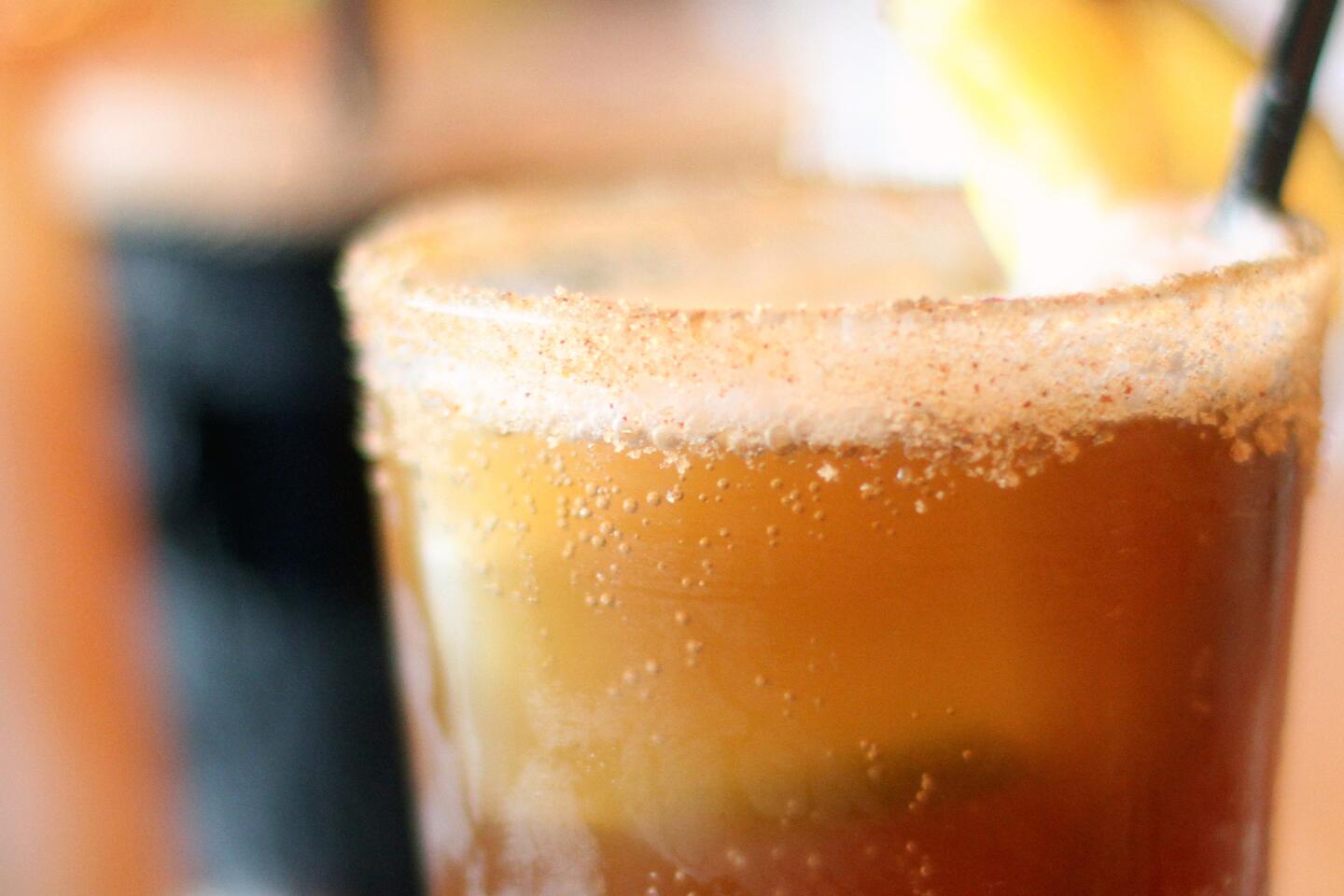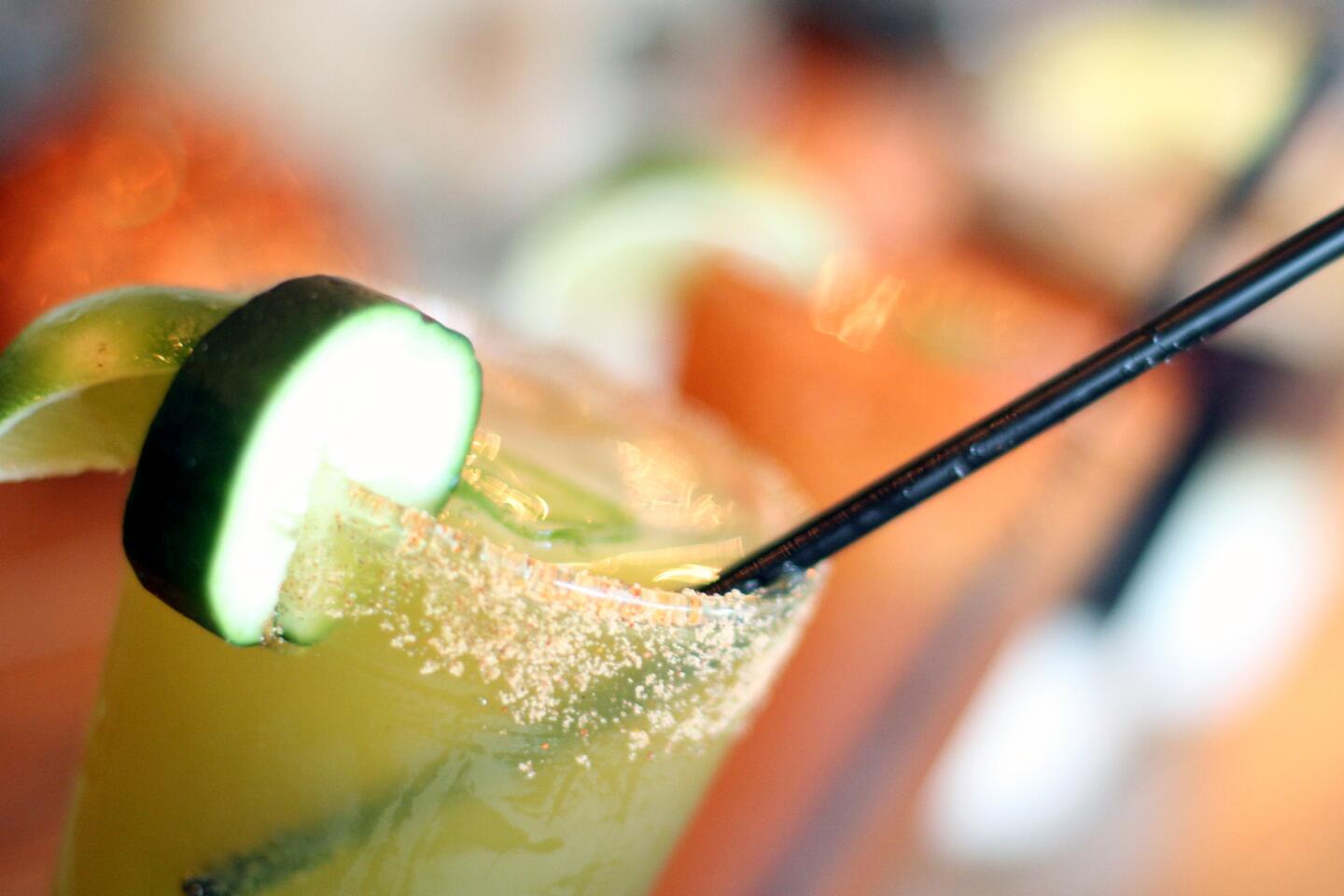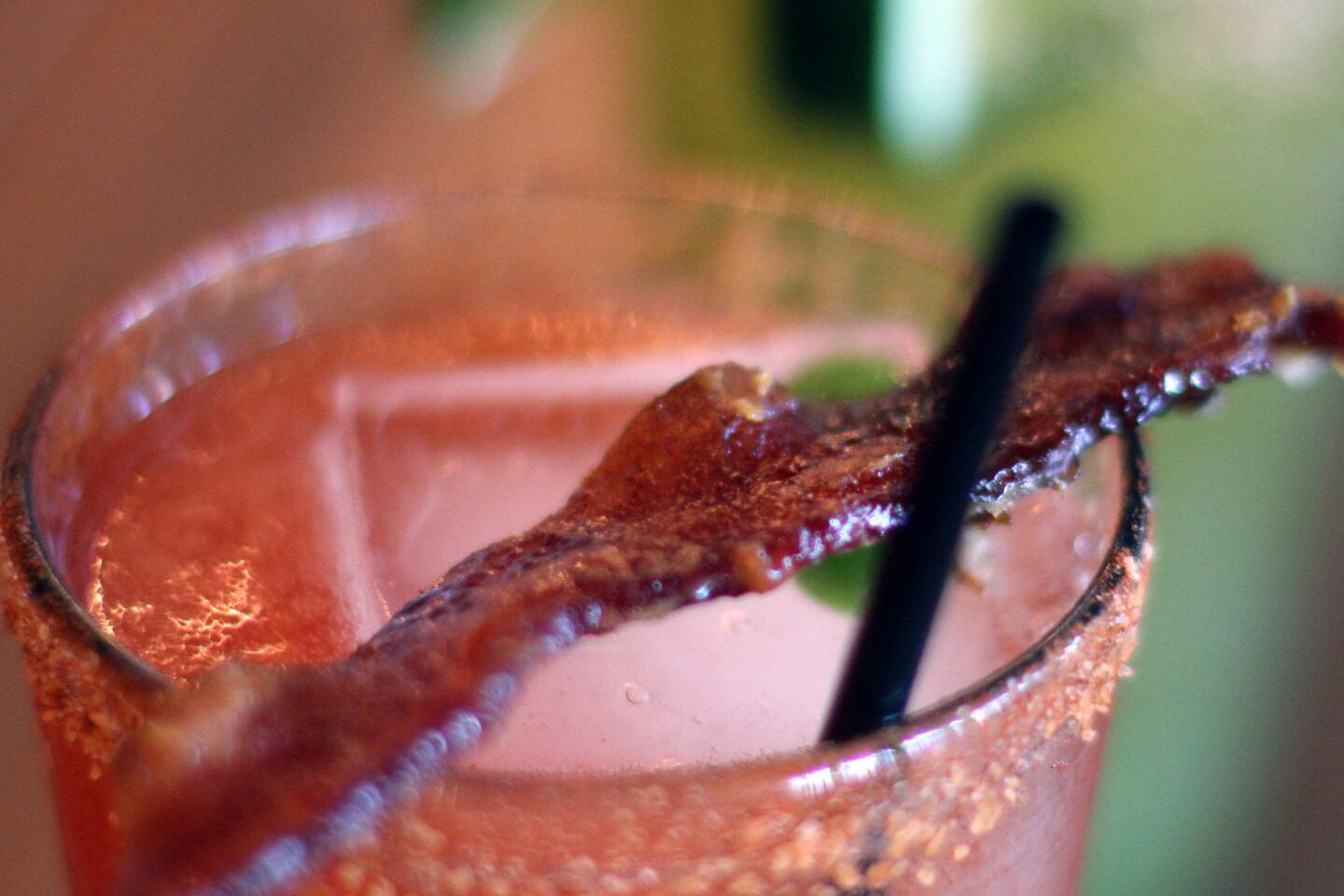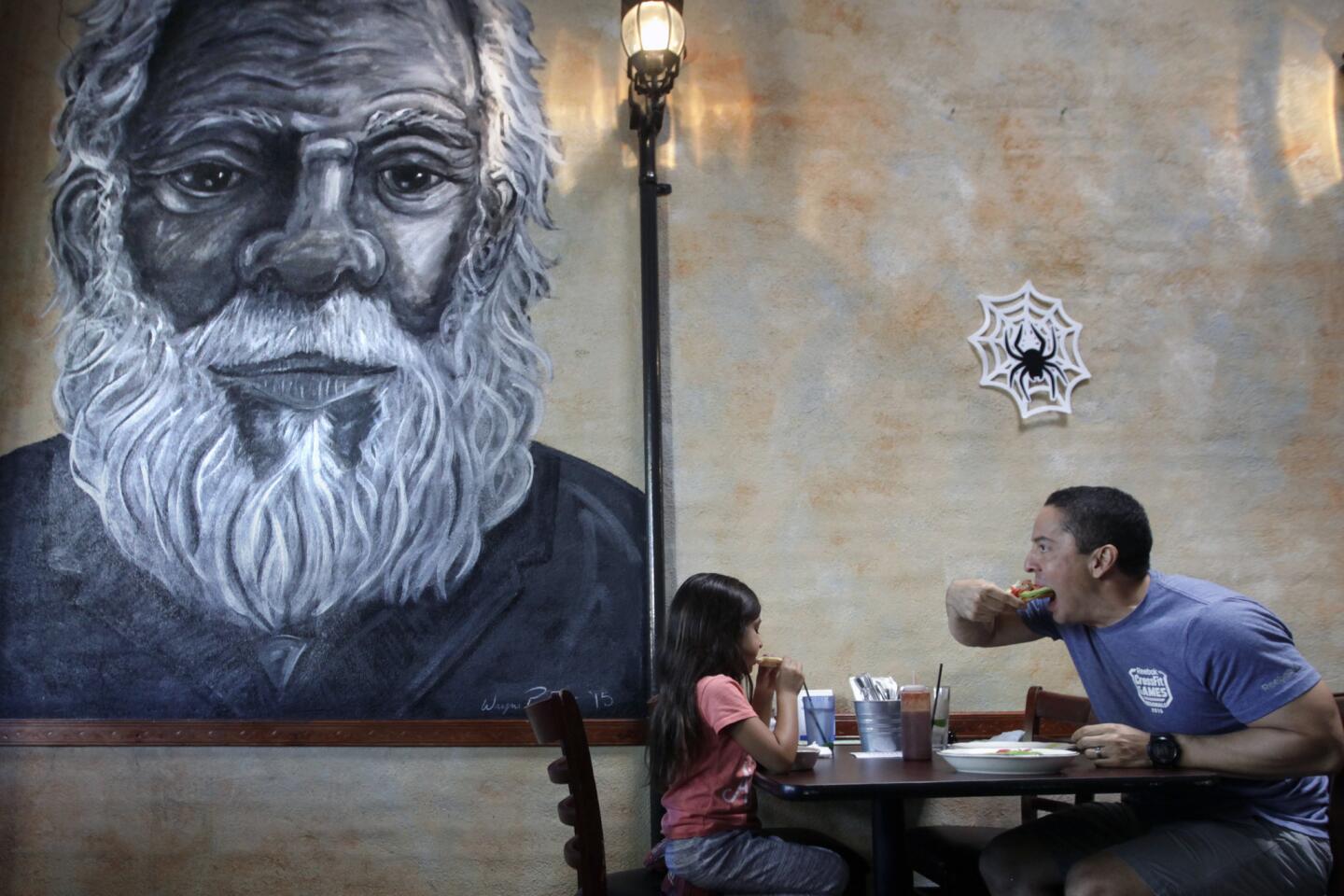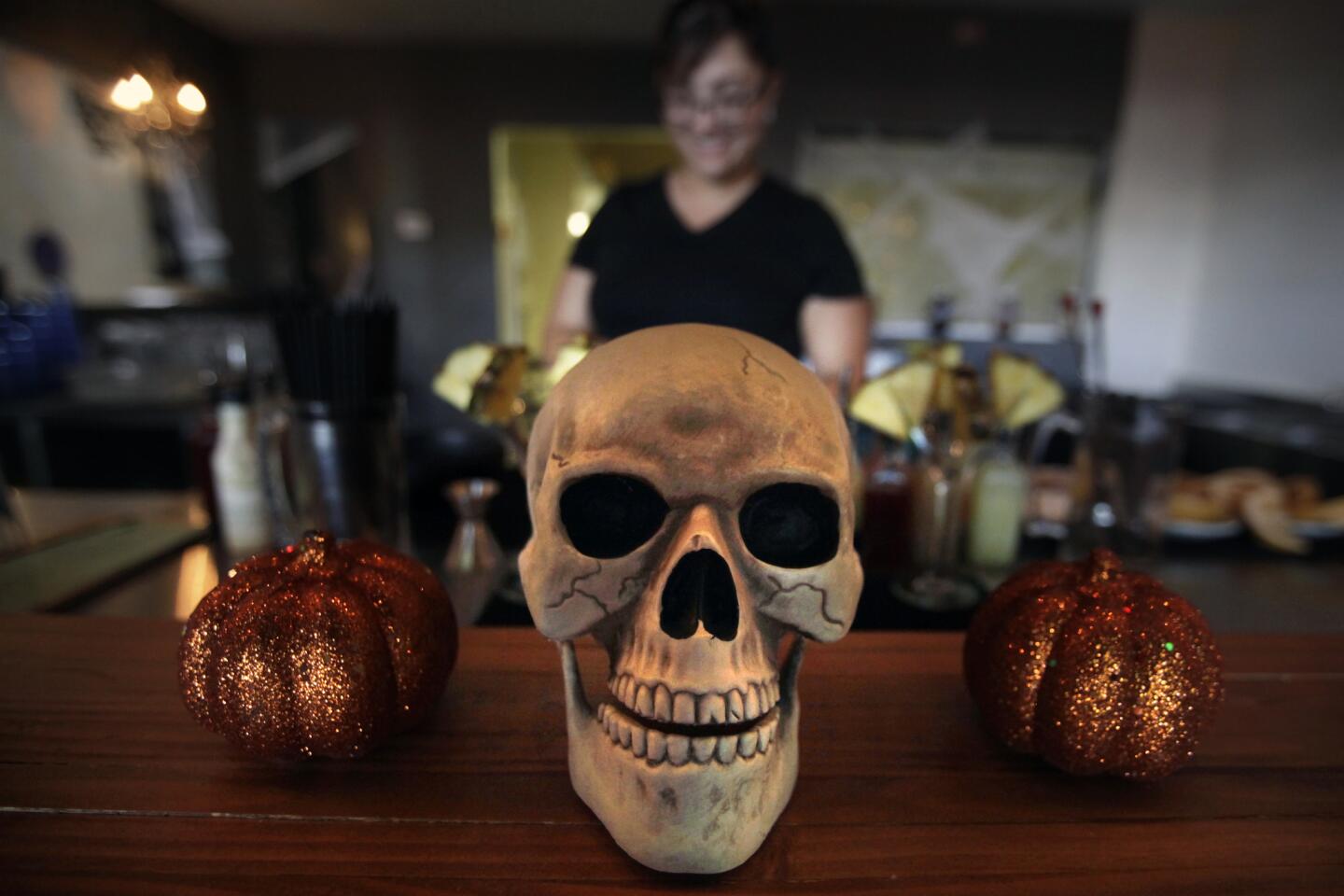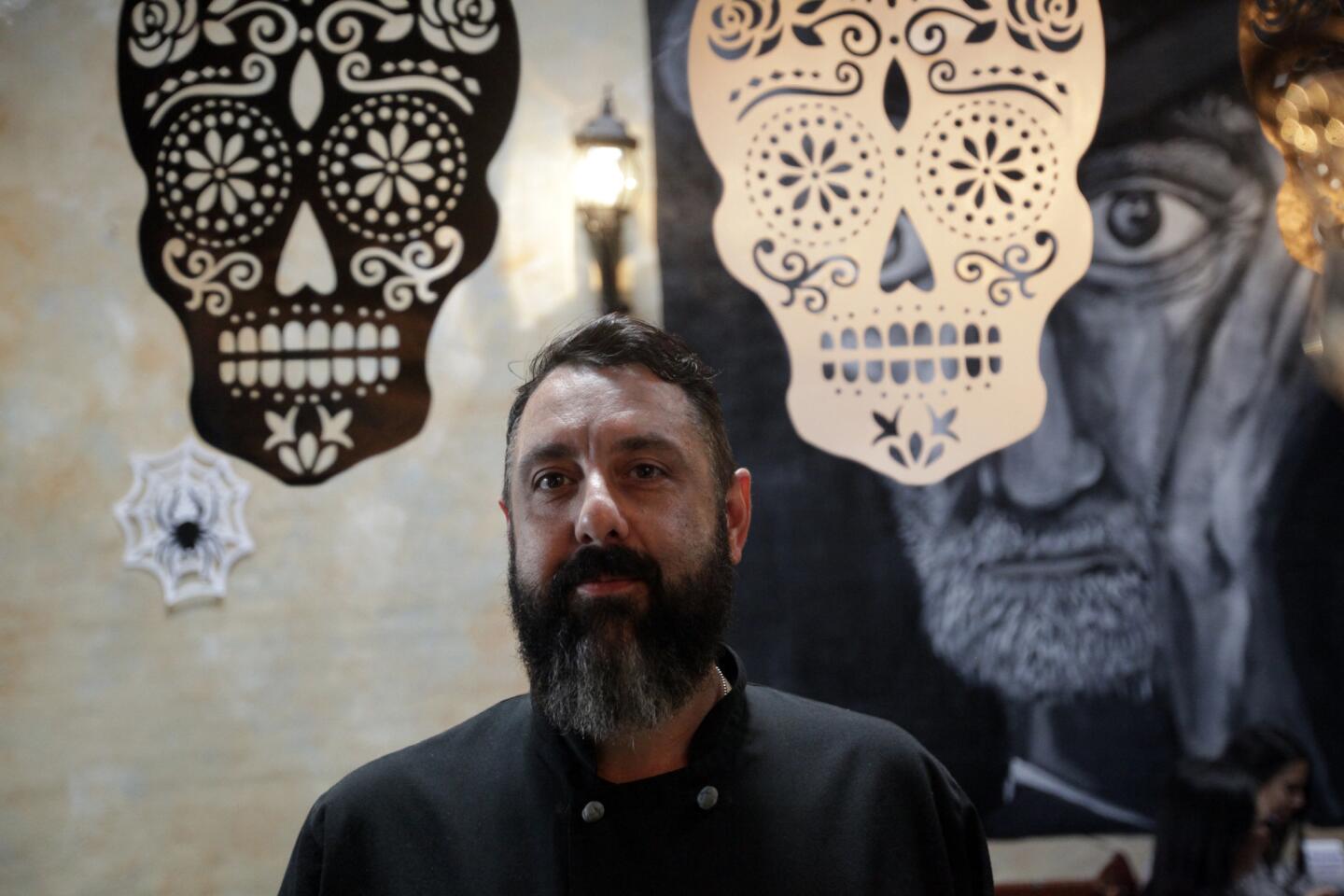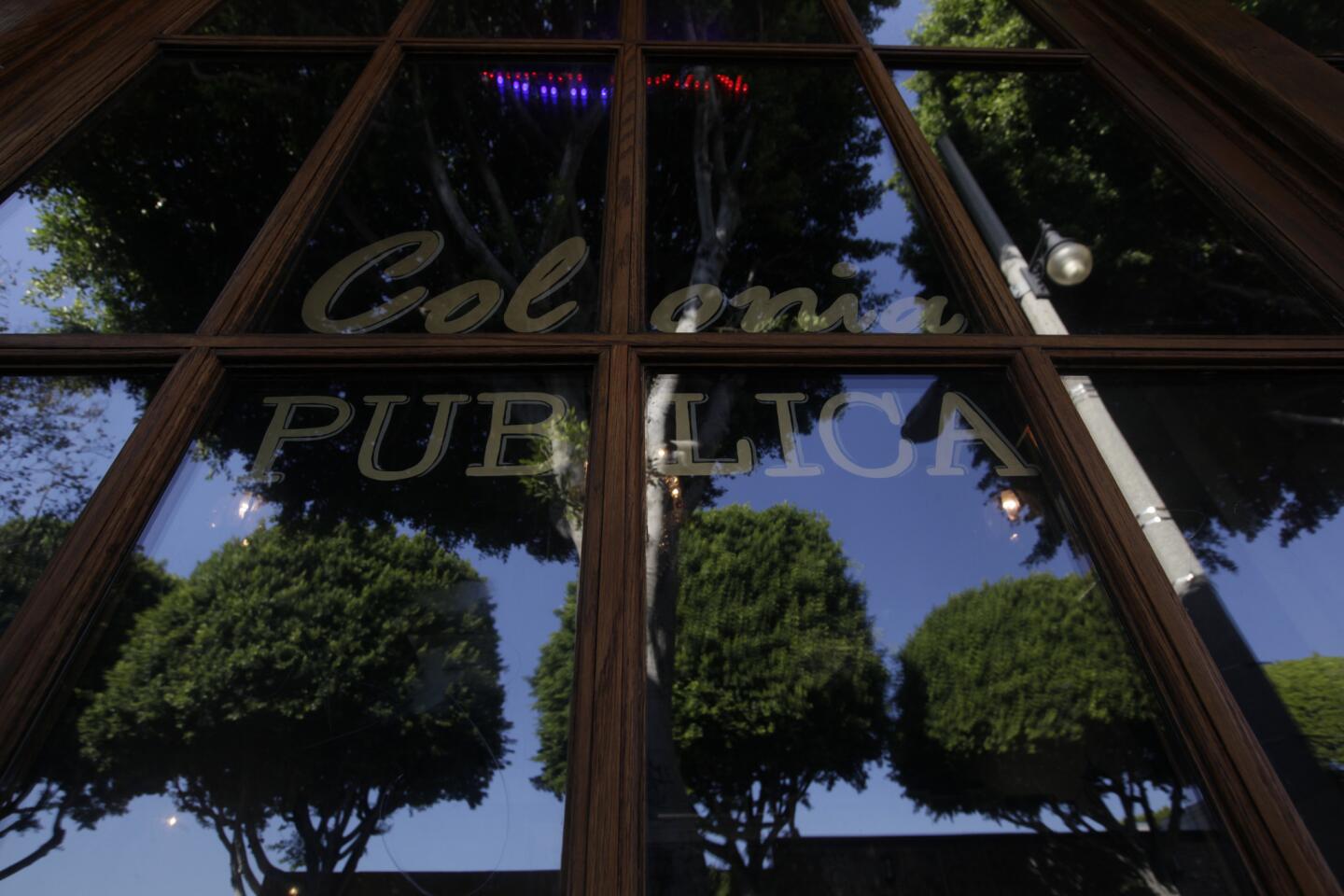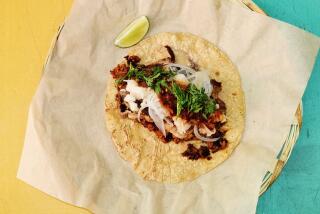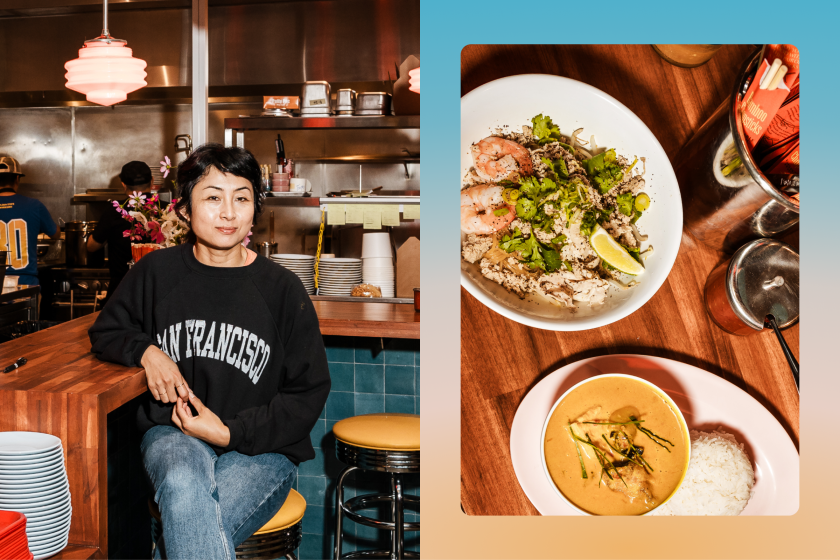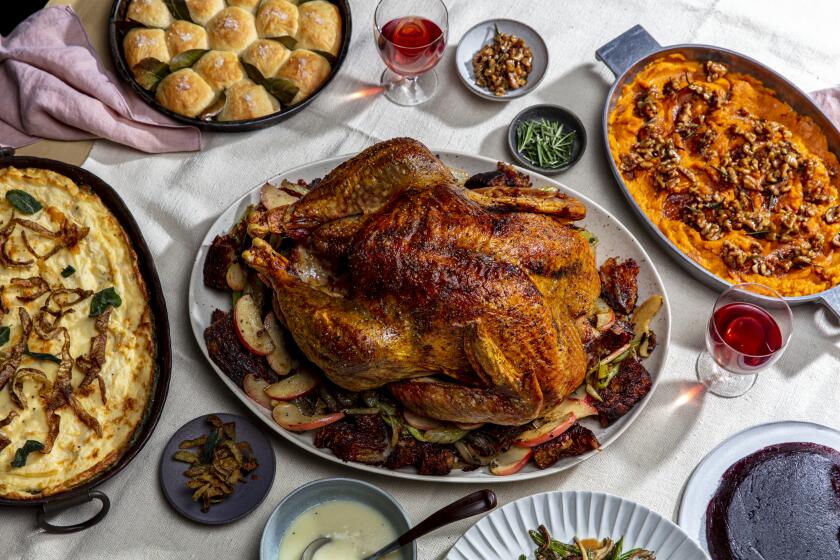Review: At Colonia Publica, come home to a warm bowl of fideo
If you time it right, maybe on a Saturday afternoon, you may be lucky enough to run into an art fair or a car show or a Halloween festival in Uptown Whittier when Greenleaf Avenue is roped off, gleaming custom cars line the side streets and music, mostly oldies, booms from almost everywhere that it is possible to boom. Greenleaf is already kind of the Main Street of Eastside pop culture, lined with comic-book stores, record stores, tattoo parlors and goth boutiques in place of the old-line bookstores the neighborhood was famous for a decade or two ago, but the presence of vintage LTDs and Impalas, T-shirt booths and sticky raspado stands can make the neighborhood seem almost more of itself.
And as you walk up Greenleaf, you may notice a throng gathered outside Colonia Publica, an outpost of Ricardo Diazâs Eastside restaurant empire. It strongly resembles a bar, although a bar that tends to have a lot of families around the tables. It is a good place to drink a michelada, a beer cocktail perfect for day drinking, that may include chile and Clamato, grapefruit and salt, or even stout and a glug of horchata. It sells a lot of different micheladas here.
A mural of Pio Pico, the last Mexican governor of California, takes up a wall; a chalked sign above the kitchen reminds you helpfully that âAll poets are liars.â The music is pretty good, sometimes a Metallica album played all the way through; sometimes the slow jams appropriate to a Saturday night. Black is everybodyâs favorite color. Even without the perennial skulls, Colonia Publica would be a swell place to celebrate DÃa de los Muertos.
Eat your way across L.A.
Get our weekly Tasting Notes newsletter for reviews, news and more.
You may occasionally receive promotional content from the Los Angeles Times.
Diaz is known for the elaborate tacos and antojitos at places like Tacoteca, Cookâs Tortas and Bizarra Capital, but Colonia Publica is devoted to fideo. Fideo is a Mexican dish of wispy vermicelli noodles, toasted in a little oil before being introduced to simmering broth. You could think of it as a sort of Mexican risotto. If you use a modest quantity of broth, the fideo swells and becomes more or less solid. In Spain, that kind of fideo is a pretty common dish on the Catalan coast, where it is called fideua and is often elaborated with heroic quantities of Mediterranean seafood, as a kind of noodle paella. In Mexico and around the Mexican diaspora, it is usually served as a soup but almost infinitely customizable, with nearly any kind of chile, meat, vegetable or garnish a cook could imagine.
Fideo is not often a restaurant food. It is home cooking, strongly identified with soothing comfort, with mom and Thursday nights in front of the TV.
When Colonia Publica opened last spring, it was a pop-up devoted solely to fideo, and although you will probably want to start your meal with a gooey chicken tostada drizzled with jet-black mole sauce, a grilled ceviche taco or maybe the spicy grilled sandwich made with candied pork belly, the fideo here is still kind of the point. Coloniaâs fideo is intended as a sort of Mexican ramen â the servers sometimes wear T-shirts emblazoned with a rebus picturing a pointy bolt and a bowl of ramen, to give you some idea of where they stand on the fideo/ramen divide. It is possible to be as dogmatic on the subject of fideo as an otaku can be about his tonkotsu broth, although most people tend to be more laid back.
So when you settle into a booth at Colonia Publica, order a cocochelada made with pineapple and Negra Modelo and start wondering what you are going to eat, you are handed a checklist, like the kind you see at some ramen shops, asking exactly what you would like to put into your soup, which you can get vegetarian if thatâs your jam. The basic bowl is $6. For a few bits more, you can get smoked sausage, which is something from the frankfurter family; bits of chicken; or a small handful of garlicky shrimp. When you order chorizo, it comes as a spoonful of crumbled sausage on the bottom of the bowl, which makes the broth spicier and glazes its surface with thick red oil. If you check off the chicharrones box, you get a fistful of crunchy fried pork rinds scattered across the bowl. If youâre up for cheese, there is queso fresco, which forms into a kind of fluffy quenelle in the hot broth, indistinguishable from tofu. Jack cheese becomes a denser blob; sprinkles of queso añejo have more or less the tangy effect of Parmesan cheese.
And then your bowl comes, unlike any bowl in the world, and you tear into it as if it were a bowl of steaming tomato soup on a cold, rainy day.
It is hard to avoid a sort of competition at the table, seeing who has managed to compose the tastiest bowl of noodles; whether the chopped fresh Serrano chiles convey heat better than a spoonful of juicy pico de gallo (they do), whether the wisps of julienned tortilla chips are crunchier than the pork rinds; whether you want the slight sweetness of the cilantro chutney or the tang of sour cream.
And if thatâs still not enough fideo, you can get a fideo taco too.
Colonia Publica
At the Uptown Whittier outpost of Ricardo Diazâs Eastside restaurant empire, fideo.
Location: 6717 Greenleaf Ave., Whittier, (562) 693-2621
Prices: Appetizers, $5-$12; fideo, $6, add-ons, 25 cents to $1.
Details: Open 3-10 p.m. Tuesdays to Thursdays, 3 p.m. to midnight Fridays, noon to midnight Saturdays, noon to 9 p.m. Sundays. Credit cards accepted. Beer and wine. Street parking; city lot in rear.
Recommended dishes: Botana Publica, chicharrón quesadilla, fideo.
More to Read
Eat your way across L.A.
Get our weekly Tasting Notes newsletter for reviews, news and more.
You may occasionally receive promotional content from the Los Angeles Times.
